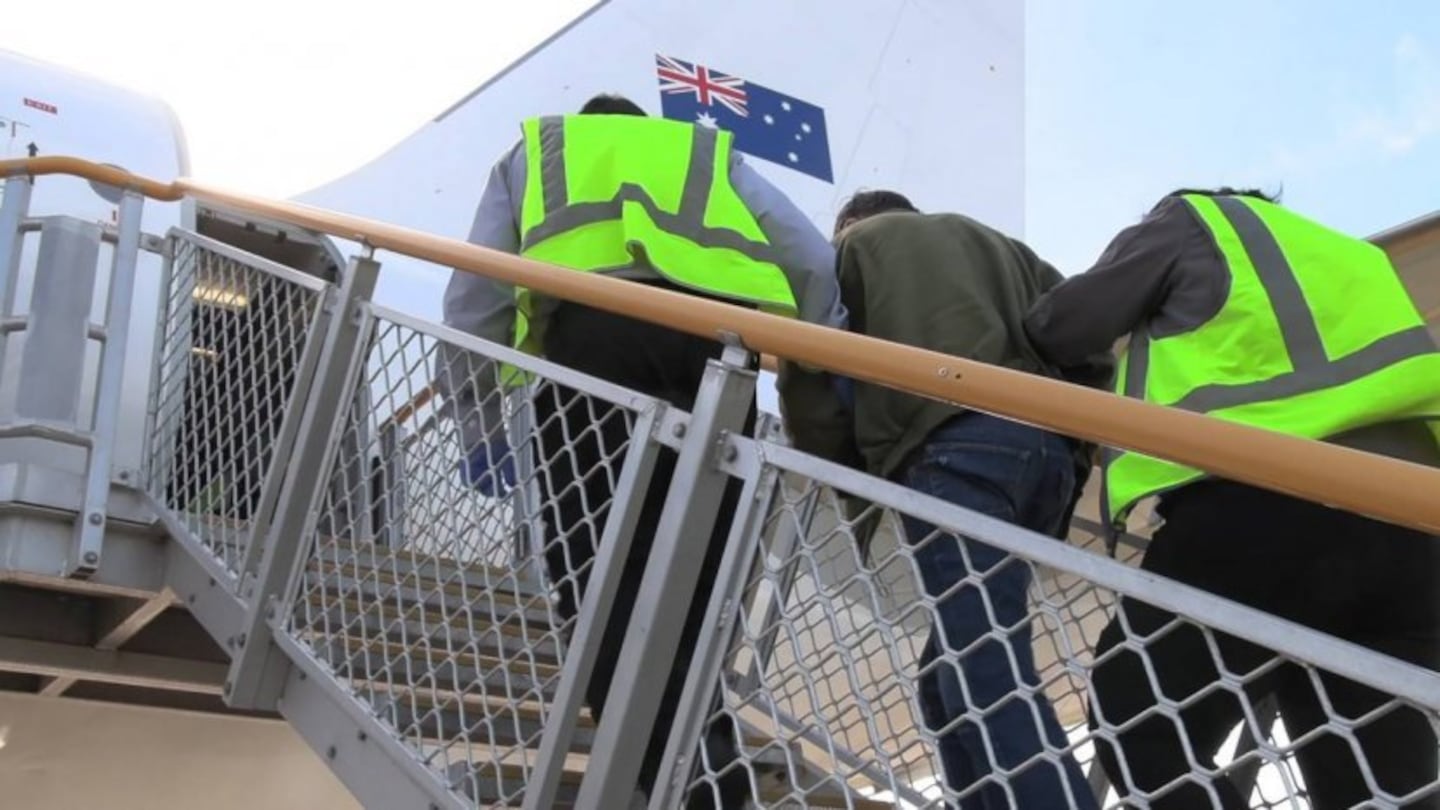If deported from Australia, Mark Skeddon would not be able to see his youngest son in the flesh again for more than 16 years. Photo / File
A New Zealand man, due to be deported from Australia under its 501 policy, has convinced authorities to let him stay despite his extensive criminal history, drug addiction and a recent prison sentence.
Mark Skedden, 41, was granted the reprieve due to his long-term links with Australia, including his three children from three relationships, and family members who have an indefinite right to remain in the country.
He is one of about 60 New Zealanders since June, 2020, who have been ordered to leave under Section 501 of the Australian Migration Act, but who successfully appealed against it.
The 501 provision can be triggered when a person is sent to jail for 12 months or longer.
Skedden was sentenced to 12 months jail in 2021 and was transferred to a detention centre on his release.
Skedden first went to Australia in 2001, aged 19, to join his mother, brother, and step-father. His father and sister remained in New Zealand and he has had no contact with them since.
When he arrived in Australia, he deliberately failed to declare his criminal history, which already ran to 29 convictions he accumulated between 1999 and 2001 for unlawfully taking vehicles, burglary, theft, and dishonesty offences.
He had been jailed in New Zealand at least once and had clocked up another conviction only 11 days before going to Australia.
Once there, his offending continued to escalate. He was convicted of his first offence – breaking and entering – eight months after getting off the plane and he racked up convictions most years thereafter - about 80 in total.
His offending included thefts of vehicles, criminal trespass, driving offences, including multiple drink-drive offences, property damage, possessing items for criminal offending, and failing to comply with court orders and bail agreements.
He worked in various roles including as an upholsterer, sprinkler fitter, welder, and sheet metal worker, and paid taxes in Australia up until about 2017 when he was jailed for a raft of offences including an aggravated assault on a domestic partner – the mother of his second child.
He started using methamphetamine in 2011 and by 2017 was heavily addicted, spending $100 a day on the drug – money he did not have.
Skedden has three children from three relationships – a son aged 13, a daughter aged 7, and a son aged 2. All are Australian citizens by birth. He is still in a relationship with the mother of his youngest child, albeit they are currently forbidden to have contact and their son was removed from their care by the Department of Child Protection when he was 4 months old due to the couple's drug use.
Skedden lost contact with his oldest child in 2016 and does not know how to contact him. He last contacted his 7-year-old daughter in 2020. The mother of the girl said their daughter had "all the support she needs and does not need a father" and that any future contact would be left up to Skedden.
In addition to his biological children, Skedden claimed he had ties to other children – a toddler grandson (whose mother is his current partner's daughter), a 2-year-old nephew, and his current partner's children aged 6 and 8 to a previous partner, with who they live in a different city.
Skedden was sentenced to 12 months in jail last July for a raft of offences - serious criminal trespass, property damage, multiple charges of dishonestly taking property, possessing an item to commit an offence, and multiple breaches of bail.
His partner was jailed for seven months for similar offences. She has since been released and is working at regaining custody of her and Skedden's 2-year-old.
In deciding whether to revoke the cancellation of Skedden's visa, the Tribunal had to consider whether Skedden met the legislative "character test" and if not, whether there was "another reason" why his visa should stand.
Several witnesses gave evidence in support of Skedden including his mother and stepfather, his current partner and her adult daughter.
The Tribunal said Skedden accepted his criminal history was serious and expressed genuine regret and disappointment for his past behaviour.
He wanted to remain in Australia to establish a connection with his biological children, having realised he could lose them forever.
The tribunal noted he had chosen drugs over his children in the past but had since demonstrated a commitment to be a positive role model for his family and a contributing member of the Australian community.
He had taken steps to address his methamphetamine addiction, complied with the court's No Contact order preventing contact with his current partner, and was willing to take whatever steps were necessary to regain the care of his youngest son.
If deported, Skedden contact with his Australian family would be limited to video calls. He couldn't see his young son again in the flesh until the boy was an adult - in more than 16 years' time.
This would have "extremely negative consequences for his Australian children and will be in breach of Australia's international obligations regarding the best interests of minor children", the tribunal said.
Australia's newly-elected Prime Minister Anthony Albanese has said the controversial policy will remain but he has promised to "work through" implementation issues with New Zealand.




